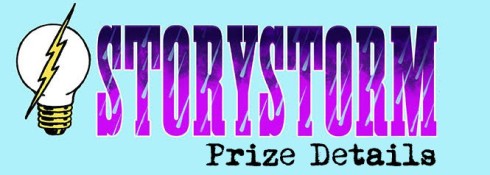by Jamilah Thompkins-Bigelow
For me, story ideas come from two extremes: when I allow my mind to wander or when I focus it on the small and specific. They are opposite ways of thinking and yet, somehow, both give me great material.
My mental wanderings happen each day during my daydream time. Daydream time sounds like the stuff of unicorns and pixie dust but in practical terms, it’s time I schedule to be bored. Typically, it’s 20-30 minutes on my train commute when I put away my phone and commit to not reading, communicating, or working on something. I simply sit, staring into space. I try not to people-watch or look out a window. Observing people and things can be great inspiration, but I push my mind to feed off nothingness during daydream time.
The trick to this is having no expectations about what my brain should do here. I allow it to do what it wants to. I might think through a stressful interaction I had with a family member. I might remember something that makes me laugh. I might come up with a new, fun program for my youth center. I may reflect on my nervousness around a new venture and mentally speak words of confidence to myself.
Sometimes, I get a story idea.
An idea that comes from boredom is often strange and exciting and the urge to not lose it is strong, but I fight to not take out a phone or notebook to work on that idea during that time. During daydream time, I’m just there to observe the idea. I let the idea move freely without trying to name, define, critique, organize, or develop it. I can do that work later. I let that idea twist itself around in my head and dance around in my thoughts the way it wants to.


My other main source of material is typically a specific word or phrase. Often these come from books. However, a number of my manuscripts come from focusing on something seemingly inconsequential that a young person said but that I can’t forget. I’ll consider these words and ask questions about them and imagine how they might work in a story.
YOUR NAME IS A SONG was inspired by my focusing on the name, Olumide (pronounced O-loo-muh-Day), which a teen I worked with had told me was his middle name. I simply loved the sound of it, the feel of it on my tongue, and decided to take time to reflect on it. I mused, “Olumide is a melody.” That led to many thoughts: That name is a song! What other names are like songs? What if I told someone their name is a song? How would they respond? “Your Name is a Song” would be an intriguing book title. But what would a story with that title be about?
Eventually, I worked out those questions and developed a story about a girl whose name gets repeatedly mispronounced. I also decided to use the narrative to celebrate names from certain cultures that may often be mispronounced by American teachers. “Olumide is a melody” became an actual sentence in the book!

So, today, consider focusing on something—a word or phrase that won’t leave you possibly. Or, don’t focus at all. Let the ideas wander in as they wish!
 Jamilah Thompkins-Bigelow centers Black and Muslim children in her work. She is the author of critically acclaimed picture book, Mommy’s Khimar. Through her work with Mighty Writers, she also provides free writing programs for Philadelphia youth. This year, she looks forward to the publication of her work in MG anthology, Once Upon an Eid and her picture book, Your Name is a Song.
Jamilah Thompkins-Bigelow centers Black and Muslim children in her work. She is the author of critically acclaimed picture book, Mommy’s Khimar. Through her work with Mighty Writers, she also provides free writing programs for Philadelphia youth. This year, she looks forward to the publication of her work in MG anthology, Once Upon an Eid and her picture book, Your Name is a Song.
Find her online at jamilahthewriter.com, Twitter: @jtbigelow, and Instagram: @authorjamilah.

Jamilah is giving away a picture book critique.
Leave one comment below to enter.
You’re eligible to win if you’re a registered Storystorm participant and you have commented once below.
Good luck!
Source : Storystorm 2020 Day 20: Jamilah Thompkins-Bigelow Wanders or Focuses









